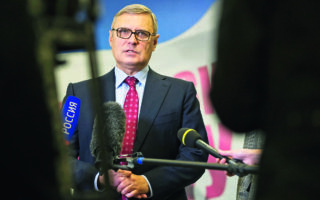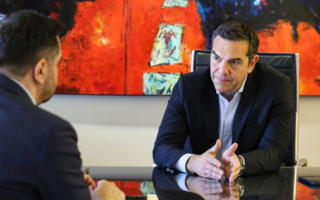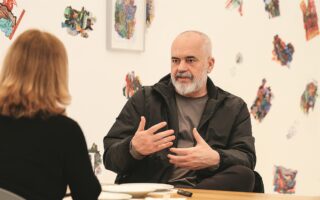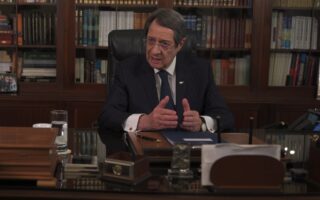Smart power and conflict deterrence
Former US assistant secretary of defense sees no end soon in Ukraine war
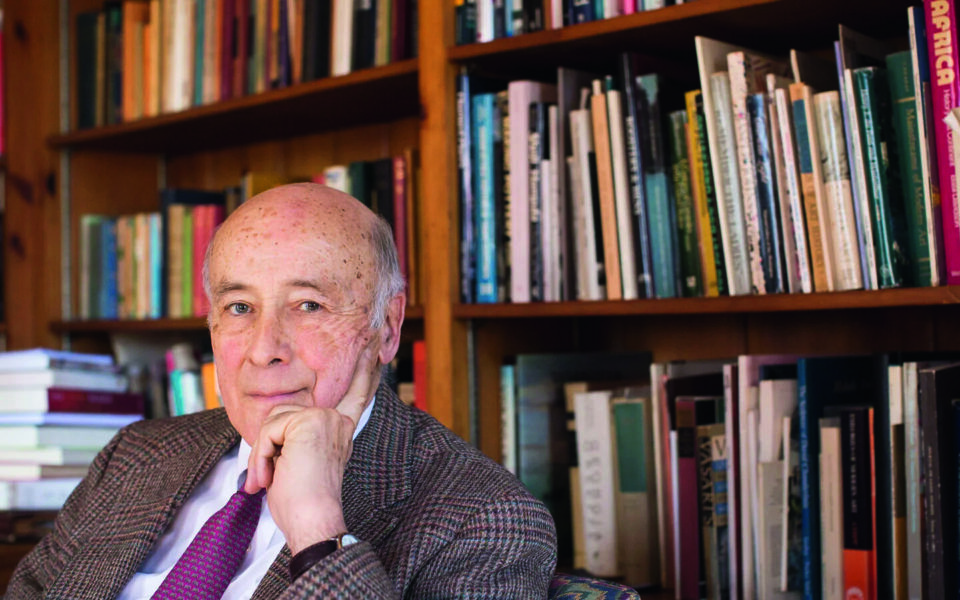
In international relations, the term “power” is categorized in three forms: hard, soft and smart. Smart power refers mainly to the use of soft means of influence, such as diplomacy, combined with the exercise of hard, military power. Today, and while the conflicts within Ukraine continue, the strategic doctrine of smart power of former US assistant secretary of defense for international security affairs Joseph Nye is back in the spotlight.
Kathimerini spoke with the veteran politician and founder of the smart power concept. The distinguished Harvard professor, with a long tenure in the American political arena as assistant secretary of defense during the Clinton administration (1994-95) and as chief of the National Intelligence Council (1993-94), responds on the possible outcome of a war with a weakened Russia and the central role that Greece can play.
What is power and how can it be used to deter conflicts?
Power is the ability to affect others to get what you want. And it can be done in three ways. It can be done through coercion, payment or attraction. The first two of those I call hard power, and the third I call soft power. Soft power is the ability to get what you want through attraction rather than coercion or payment. In addition, we often think of deterrence as raising the costs for an opponent to be higher than the benefits. And we think of that usually in military terms with retaliation or economic terms with sanctions. But soft power can also contribute to deterrence. If a country knows it is going to severely damage its reputation and lose its ability to attract others, that can sometimes help to deter. Now, we know that in the case of the Russian invasion of Ukraine, none of these three forms of deterrence worked. Therefore, deterrence is possible but does not work in all cases.
Soft power over hard power or the opposite?
I think you need both. I use the term smart power to refer to the ability to combine hard and soft power so that they do not cancel each other out but reinforce each other. For example, in the Persian Gulf, the second President Bush used hard power without a legitimizing resolution from the United Nations, and that undercut American soft power. So that was a case where hard power and soft power conflicted. On the other hand, his father, the first President Bush, made sure to get a UN resolution, an Arab League resolution and to include Arab armies in his coalition. And this was basically a way to combine soft power with hard power. That is what I call smart power.
How effective have Western sanctions against Russia been?
‘Greece can punch above its weight as a peripheral power, because it is part of a larger European and Atlantic community’
Sanctions are one instrument of power, but they often take a long time and they often require cooperation with others. When they are multilateral, sanctions are more effective. In the case of the Russian invasion of Ukraine, the sanctions have not been that effective in the short run. And part of the problem is that Russia’s major export is oil, which is a very fungible commodity. So as long as oil can be purchased, even at a discount in world markets – and it is being purchased – then essentially that limits the effectiveness of those sanctions. So, the key question will be whether, over a longer term, the sanctions on technology going into Russia will make a difference. And many people think it will indeed weaken Russia over time. We have to think of the case of apartheid in South Africa, where in the short run the imposed sanctions did not change policies, but in the long term, they contributed to the change in the apartheid policy.
How has the war in Ukraine affected the global balance of power?
I think what we saw in Ukraine was a tightening of the relationship between Russia and China. But we also saw that it has limits in the sense that China has not wanted to send military equipment to Russia, which would essentially tie it to Russia’s problems. In addition, China abstained rather than condemned or supported Russia, in the various UN resolutions. So, I think it is indicated that the Russian-Chinese alignment will continue, but I do not think that it is going to get much closer. On the other hand, if you look at the alignment between the US and the Europeans in NATO, I think that is considerably stronger as a result of the Russian invasion of Ukraine. The accession of Finland and Sweden to NATO is certainly not what Putin intended when he invaded Ukraine. Therefore, I think NATO is stronger, while the China-Russia relationship is not much changed. In that sense, Russia is a net loser in terms of the balance of power.
One year after the invasion of Ukraine, how close are we to the end of the war?
Unfortunately, I do not think we are close to the end of the war. Basically, neither side is willing to change its objectives. Putin has not accepted Ukraine as a legitimate state. And even though he is involved in a stalemate on the battlefield, if he can weaken Ukraine, that helps him to achieve his objectives. On the other side, Ukraine wants to regain its territory, including the territory it lost in 2014. So I do not see the basis for a successful negotiation any time soon. Now, negotiations and war are often determined by the situation on the battlefield, and we do not know whether that may change. The expected Russian winter offensive does not seem to have been very successful. We will have to see what happens with the expected Ukrainian spring offensive.
What would be a possible future with a weakened Russia?
At some point, we need to think about how to reintegrate Russia into the international system and increase its ties with Europe. It is very difficult to imagine how you do this with Putin in power, but someday there will be a post-Putin Russia. And it is going to be important then to think about how we increase the ties between Europe and Russia and make sure that Russia is not isolated forever.
How do peripheral countries like Greece contribute to the formation of a defensive wall?
Greece plays a significant role as a partner in NATO. Also, it plays a significant role as a member of the European Union. So on this basis, Greece can punch above its weight as a peripheral power, because it is part of a larger European and Atlantic community that enhances or multiplies its strength. So in that sense, the extent to which Greece continues what it is doing now, which is playing a significant role both in Europe and in NATO, strikes me as the best path for Greece.
